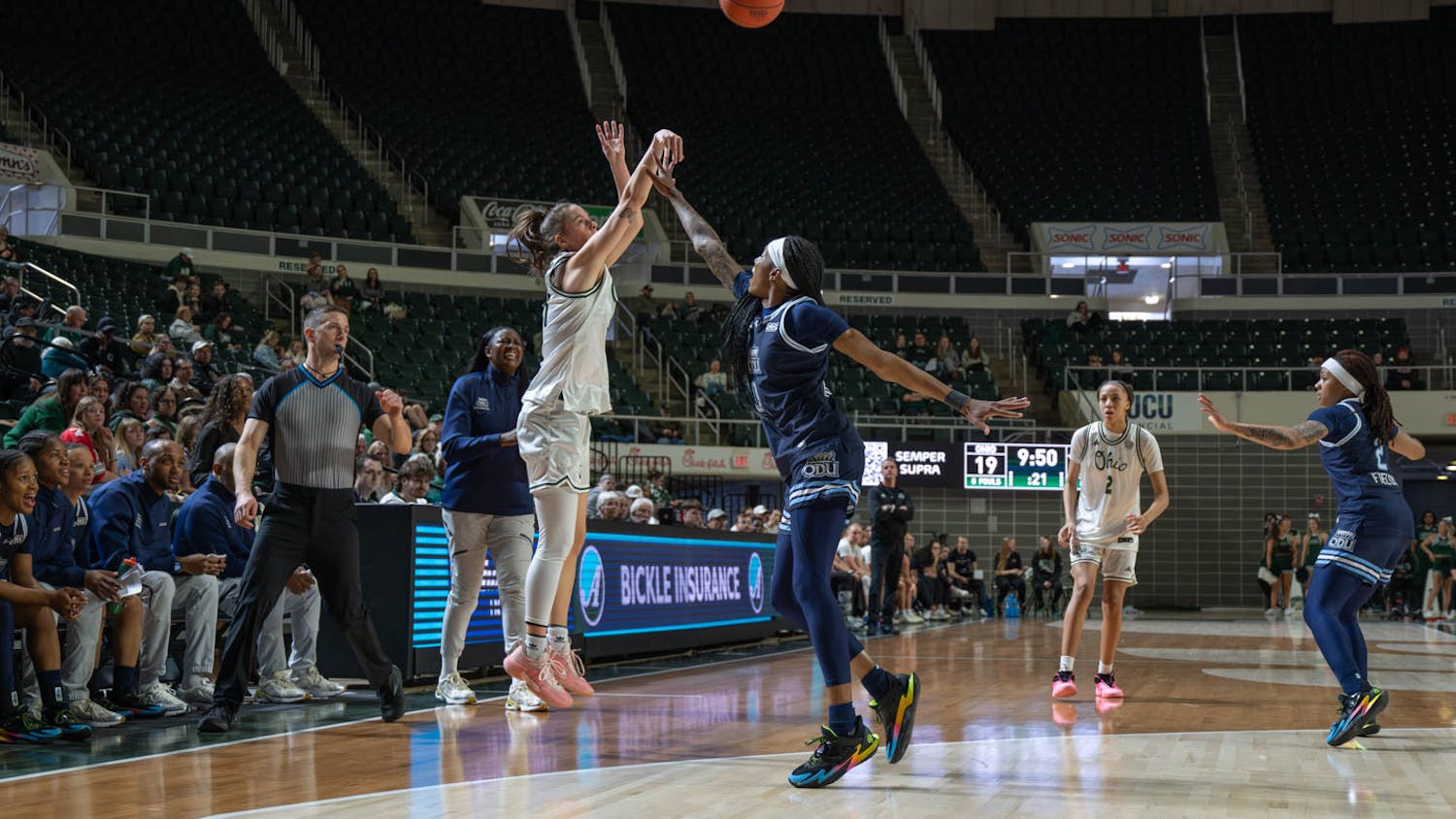Correction appended.
A journalism faculty member has started the process for losing his tenure after he was investigated within the university and then sued for sexually harassing a student on a university trip.
Yusuf Kalyango, who joined the journalism faculty in 2008, has his teaching and advising duties suspended, but Carly Leatherwood, a university spokesperson, said he is now working on research.
Kalyango’s salary was over $106,000 and will remain the same, Leatherwood said.
Ohio University President Duane Nellis started the loss of tenure proceedings in January 2019 after reviewing Kalyango’s appeal and the University Professional Ethics Committee report, according to a previous Post report.
Kalyango was barred from being on campus and his research was done off-campus.
Kalyagno was found responsible for harassment by quid pro quo and sexual harassment by a hostile work environment toward a graduate student, according to a previous Post report.
Kalyango was sued by the student in January 2019.
Kalyango, who formerly directed the Institute for International Journalism, allegedly invited the student out to movies and various restaurants, as she was interested in international employment opportunities. Kalyango denied that he invited the student to the movies, shopping or dinner, according to Kalyango’s defense.
Kalyango, who has two sons, allegedly would text the student late at night, asking her to go out and telling her she was beautiful. The student told Kalyango those messages were inappropriate.
Kalyango denied this in his defense. He admitted to texting the student but denied calling her beautiful.
During a trip to Africa, Kalyango told the student that the resort only had one room and that they would have to stay in the room together, according to the lawsuit. Kalyango denied this in his response to the lawsuit.
One night, Kalyango allegedly bought multiple drinks for the student and “relentlessly urged (the student) to become intoxicated,” according to the lawsuit.
The student approached Judy Millesen, the supervisor of the Africa trip and an OU professor who was a mandatory sexual harassment reporter. Millesen allegedly told the student that Kalyango’s misconduct “was an unfortunate part of the job,” according to the lawsuit.
Millesen, who did not report the harassment, allegedly told the student that if she wanted to stay on the job, she should do whatever Kalyango wanted. Kalyango denied this in his response.
After returning from the trip, the student lost her bag, and Kalyango “aggressively yelled” at the student that it was their fault, and airport employees had to defend the student to attempt to calm Kalyango, according to the lawsuit.
The student stepped down from her position. Mary Rogus, a journalism professor and “close friend” of Kalyango, allegedly tried to persuade the student not to report Kalyango to the Equity and Civil Rights Compliance Office, according to the lawsuit.
Kalyango denied this happening in his response to the lawsuit.
The student also sued OU, claiming the university enabled the type of sexual harassment and misconduct that Kalyango engaged in by failing to implement policies to prevent professors from using their authority to seek sexual and romantic relationships with students.
The most recent update of the lawsuit was a motion to vacate on March 24 because of the COVID-19 pandemic.
At one point before the trip, the student told Kalyango that they would be flying home for a few days. Kalyango allegedly said, “Driving ten hours at night can be fun” and “I know a driver … for real … one who doesn’t mind driving ten hours back and forth … seriously,” according to OU findings from 2018.
Kalyagno denied that these messages were sent in his response to the lawsuit.
A recommendation that was made by faculty of the journalism school has been given to the Dean of the College of Communication Scott Titsworth.
The ECRC recommended that if Kalyango stayed in his position, he would need to receive training to OU policies including sexual misconduct, relationship violence and stalking.
Tenure is awarded to people who are likely to significantly contribute to academics at OU.
When a faculty member’s tenure is questioned, the member has a meeting with the department chair about the matter, according to the university handbook. If it is not settled between the person and the chair, then the chair will consult with members of their department.
Then, with the advice of the promotion and tenure committee, a recommendation is forwarded in writing to the dean of the college.
A hearing to determine if the individual should be removed from their position is then conducted by a faculty committee. The faculty member has 60 days to prepare their defense.
Suspension of the faculty member is justified only if immediate harm to themselves or others are threatened by them still working.
If the faculty member’s tenure is terminated, they will receive their salary for at least one year, according to the faculty handbook.
Correction appended: The article has been updated with information about the recommendation given to Dean Scott Titsworth, the detenuring process, Yusuf Kalyango’s response to the lawsuit and references to previous Post reports.






